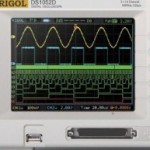- This topic has 36 replies, 14 voices, and was last updated 7 years, 7 months ago by
 MEET KUMARI.
MEET KUMARI.
-
AuthorPosts
-
-
April 14, 2016 at 3:41 pm #36777
 Ankita SharmaParticipant
Ankita SharmaParticipantHello everyone,
I just want to ask for the simulation of GPON based FTTH,how do we find BER ? Is it preferable to use 3R before BER analyzer or connect BER analyzer with PRBS and NRZ pulse generator? Which method will give the accurate results?
Hope to hear from you soon
Thanks
-
April 15, 2016 at 12:43 am #36833
 shafeen al yasinParticipant
shafeen al yasinParticipantHi dear,
Both ways are correct. Either connecting a 3R regenerator or connecting BER analyzer with PRBS and NRZ pulse generator , both are correct. I will suggest you to use former because you will have improved signal quality. I hope it will help you..
Regards
Shafeen -
April 15, 2016 at 1:27 am #36836
Manoj Kumar
ParticipantHi ankita,
I agree with Shafeen here that both the ways are correct… Hope this helps…
Regards
-
April 15, 2016 at 2:17 am #36845
 SAHIL SINGHParticipant
SAHIL SINGHParticipantHi ANKITA,
It is rightly mentioned by Shafeen and Manoj that both ways are correct. Either connecting a 3R regenerator or connecting BER analyzer with PRBS and NRZ pulse generator… Hope this helps
Regards
Sahil Singh-
April 15, 2016 at 5:05 pm #36955
 shafeen al yasinParticipant
shafeen al yasinParticipantHello Sahil,
I find both ways correct. And i have tried it myself. Anyways thanks for supporting..Regards
Shafeen
-
-
April 15, 2016 at 3:31 am #36853
 Ankita SharmaParticipant
Ankita SharmaParticipantHi shafeen,
Thanks for the information…
Regards
Ankita-
April 16, 2016 at 4:07 pm #37298
 shafeen al yasinParticipant
shafeen al yasinParticipantHi Ankita
You are welcome. It feels an immense pleasure to help people
Regards
Shafeen
-
-
April 15, 2016 at 3:33 am #36854
 Ankita SharmaParticipant
Ankita SharmaParticipantHi Sahil Sir,
Thanks for the information… You have always provided your valuable response…
Regards
ANKITA -
April 15, 2016 at 3:36 am #36855
 SAHIL SINGHParticipant
SAHIL SINGHParticipantHi ankita,
You are welcome…
Regards
Sahil Singh -
April 15, 2016 at 6:42 am #36868
 Rajguru M. MohanParticipant
Rajguru M. MohanParticipantHi Ankita Sharma,
We have different samples of PON networks in Metro and access systems folder in optisystem samples files namely XGPON, GPON, BPON and others networks design. We could FTTH networks using XGPON, GPON, BPON OCDMA and others technologies.
Fiber to the home (FTTH) is an optical access
network architecture that uses optical fibers to replace all or part of
the metallic cables to the end-user. Using OptiSystem we can
explore the performance of different architectures for FTTH
networks.
Go through all these samples files by simulating them.
Here i am uploading The osd file of GPON.
You will also find information about FTTH in pdf file of FTTH networks.Hope this will help you.
Regards
Rajguru -
April 15, 2016 at 10:42 am #36901
 nagesh kuknoorParticipant
nagesh kuknoorParticipantHi All,
Is it possible?
Do both methods give same result?
I have never used BER analyzer with PBRS and NRZ directly. Can someone provide some snapshot how to do it?Regards
-
April 15, 2016 at 1:40 pm #36930
 Domail SinghParticipant
Domail SinghParticipantHi Ankita,
I agree with Shafeen. She has correctly mentioned it. We can do it either way. I think it should help you.Regards
Domail -
April 15, 2016 at 4:38 pm #36938
Manoj Kumar
ParticipantHi Rajguru,
Thanks for the information..
Regards
-
April 15, 2016 at 5:10 pm #36958
gaurav rajput
ParticipantHI everyone,
It has been correctly mentioned by forum members that we can do it either way…
Regards
-
April 16, 2016 at 4:09 pm #37300
 shafeen al yasinParticipant
shafeen al yasinParticipantHi Gaurav,
You are welcome anytime.Regards
Shafeen
-
-
April 16, 2016 at 5:02 am #37133
 jyoti rainaSpectator
jyoti rainaSpectatorhi all..
as mentioned by shafeen mam we can do it either way..both are right..there has been a discussion already on this topic..
with regards
jyoti-
April 16, 2016 at 4:10 pm #37301
 shafeen al yasinParticipant
shafeen al yasinParticipantHello jyoti
Thank you for appreciation.
Regards
Shafeen
-
-
April 16, 2016 at 5:38 am #37162
 Ankita SharmaParticipant
Ankita SharmaParticipantHi all,
Thanks everyone… Truly appreciate your efforts…
Regards
Ankita-
April 17, 2016 at 2:32 pm #37554
 Domail SinghParticipant
Domail SinghParticipantHi Ankita
You are welcome. Glad it helped.Regards
Domail
-
-
April 16, 2016 at 6:02 am #37175
 Remo De SuzaParticipant
Remo De SuzaParticipantHello Ankita.
This topic has been already discussed. Please refer to the links for further information regarding this.I hope this will be of some help.
Regards
Remo-
April 16, 2016 at 1:23 pm #37227
 nagesh kuknoorParticipant
nagesh kuknoorParticipantHi Remo,
thank you for sharing the links. Indeed very very helpful. I had no idea of connecting BER directly with NRZ and PBRS. Thank you.Regards
-
-
April 16, 2016 at 8:14 am #37211
 Rajguru M. MohanParticipant
Rajguru M. MohanParticipantYou are welcome Manoj kumar
Thank for your appreciation.
I will keep sharing such valuable information. -
April 16, 2016 at 1:21 pm #37226
 nagesh kuknoorParticipant
nagesh kuknoorParticipantHi All,
Thank you so much everyone for sharing it. It was very helpful indeed.
Regards -
April 16, 2016 at 5:26 pm #37316
Manoj Kumar
ParticipantHi Rajguru,
Your efforts are truely worth appreciating…
Regards
-
April 17, 2016 at 6:44 am #37395
 Rajguru M. MohanParticipant
Rajguru M. MohanParticipantHi Ankita,
Here are some links which help you.
In addition to this i would suggest you to simulate sample files related to PON.
-
April 17, 2016 at 2:34 pm #37556
 Domail SinghParticipant
Domail SinghParticipantHello Rajguru
Thank you for sharing the videos.Regards
Domail
-
-
April 17, 2016 at 1:27 pm #37526
Manoj Kumar
ParticipantHi Rajguru,
Really valuable information provided by you…
A nice video as well…Regards
-
April 17, 2016 at 2:11 pm #37545
 Ankita SharmaParticipant
Ankita SharmaParticipantHi Rajguru,
Thanks for the information.. Will surely try to look into it…
Regards
Ankita -
April 17, 2016 at 3:11 pm #37576
deepak jha
ParticipantHi all,
Avery discussion on the topic..Highly appreciate the efforts of Rajguru…
Regards
-
April 17, 2016 at 5:50 pm #37698
Rahul Tiwari
ParticipantHi Ankita,
I agree with Remo that topic has already been discussed on the forum..
Regards
Rahul Tiwari -
April 20, 2016 at 3:38 pm #38413
 Rajguru M. MohanParticipant
Rajguru M. MohanParticipantYou are most welcome Manoj Kumar.
Thank you for your agreement and consent. -
April 20, 2016 at 3:43 pm #38414
 Rajguru M. MohanParticipant
Rajguru M. MohanParticipantHi Nagesh,
First you connect PBRS to NRZ,
As BER analyzer has three input ports , so you should connect
the output port of PBRS to most upper input port of BER analyzer.
After that The output port of NRZ will be connected to middle port of BER analyzer.
and finally the final output will be connected to 3rd or bottom port of BER analyzer.Hope you will understand
Thanks and regards,
Rajguru -
April 28, 2016 at 7:52 pm #38610
 Rajguru M. MohanParticipant
Rajguru M. MohanParticipantHi Ankita,
A PON system utilizes a passive splitter that takes one input and splits it to “broadcast” signals downstream to many users. This reduces the cost of the system substantially by sharing one set of electronics and an expensive laser with up to 32 homes. Upstream, the passive splitter acts as a combiner to connect all users to the same shared PON port. An inexpensive laser is used for the home to send signals back to the FTTH system in the central office.
Different technologies of GPON are:
BPON, or broadband PON, was the most popular PON application in the beginning. BPON uses ATM as the protocol. ATM is widely used for telephone networks and the methods of transporting all data types (voice, Internet, video, etc.) are well known. BPON digital signals operate at ATM rates of 155, 622 and 1244 Mb/s.
Downstream digital signals from the CO through the splitter to the home are sent at 1490 nm. This signal carries both voice and data to the home. Video on the first systems used the same technology as CATV, an analog modulated signal, broadcast separately using a 1550 nm laser which may require a fiber amplifier to provide enough signal strength to overcome the loss of the optical splitter. Video could be upgraded to digital using IPTV, negating the need for the separate wavelength for video. Upstream digital signals for voice and data are sent back to the CO from the home using an inexpensive 1310 nm laser. WDM couplers separate the signals at both the home and the CO.Thanks,
-
April 28, 2016 at 7:58 pm #38611
 Rajguru M. MohanParticipant
Rajguru M. MohanParticipantHi Ankita,
We have different technologies of PON having different data rate and other parameters, which i like to share :
GPON, or gigabit-capable PON, uses an IP-based protocol and either ATM or GEM (GPON encapsulation method) encoding. Data rates of up to 2.5 Gb/s are specified and it is very flexible in what types of traffic it carries. GPON enables “triple play” (voice-data-video) and is the basis of most planned FTTP applications in the near future. In the diagram above, one merely drops the AM Video at the CO and carries digital video over the downstream digital link.EPON or Ethernet PON is based on the IEEE standard for Ethernet in the First Mile. It uses packet-based transmission at 1 Gb/s with 10 Gb/s under discussion. EPON is widely deployed in Asia. The system architecture is the same as GPON but data protocols are differenet.
Gpon and EPON are different.
PON System Specification Summary
BPON GPON EPON
Standard ITU-T G.983 ITU-T G.984 IEEE 802.3ah (1 Gb/s),IEEE 802.3av (10Gb/s)
Downstream Bitrate 155, 622 Mb/s,1.2 Gb/s 155, 622 Mb/s, 1.2, 2.5 Gb/s 1.25 Gb/s, 10.3 Gb/s
Upstream Bitrate 155, 622 Mb/s 155, 622 Mb/s, 1.2, 2.5 Gb/s 1.25 Gb/s, 1.25 or 10.3 Gb/s
Downstream Wavelength 1490, 1550 1490 1490, 1550
Upstream Wavelength 1310 1310 1310
Protocol ATM Ethernet over ATM/IP or TDM Ethernet
Video RF at 1550 or IP at 1490 RF at 1550 or IP at 1490 IP Video
Max PON Splits 32 64 16
Power Budget
~13dB (min) to 28dB (max) w/32 split ~13dB (min) to 28dB (max) w/32 splitCoverage <20 km <60 km <20 km
Thanks,
-
April 28, 2016 at 8:01 pm #38612
 Rajguru M. MohanParticipant
Rajguru M. MohanParticipantHi Ankita,
I also would like to share FTTH Access Topologies:
—Tree architectures
Passive Optical Network (PON) technology
—-Star architectures
Point-to-point connection of customers to
switches in a star topologyAs we have discussed about BPON, GPON, EPON.
Main Issues with PONs
Data sent to all users on the tree: inefficient Video multicast & VoD
IGMP Proxy and snooping with limited support. IGMP process distributed between OLT(Proxy) and ONT(Snooper)
instable. Zapping degrades with large number of channels selected. No state of IGMP on ONT kept. Troubleshooting
by “mirroring” PONT tree, no focus on one sub (trace per user) possible Asymmetrical
All FTTH deployments that we are aware of universally assume a take rate of 25…35%. Only 25-35% of
interfaces need to be accommodated on switches in a Eth. P2P scenario rather than 100% in PON.
Strong encryption required to prevent eavesdropping.So, we have shifted towards other technologies too.
Thanks,
-
April 29, 2016 at 4:46 am #38627
 Hamza Ali Abbas KhanParticipant
Hamza Ali Abbas KhanParticipantHi All,
I would like to add that We have different samples of PON networks in Metro and access systems folder in optisystem samples files namely XGPON, GPON, BPON and others networks design. We could FTTH networks using XGPON, GPON, BPON OCDMA and others technologies.Fiber to the home (FTTH) is an optical accessnetwork architecture that uses optical fibers to replace all or part of the metallic cables to the end-user. Using OptiSystem we can explore the performance of different architectures for FTTH networks.
Thanks -
July 19, 2018 at 10:11 am #49177
 MEET KUMARIParticipant
MEET KUMARIParticipantSir Why in GPON upstream transmitter power (e.g. -3dBm) is less than downstream transmitter power (e.g. 5dBm)?
-
-
AuthorPosts
- You must be logged in to reply to this topic.

